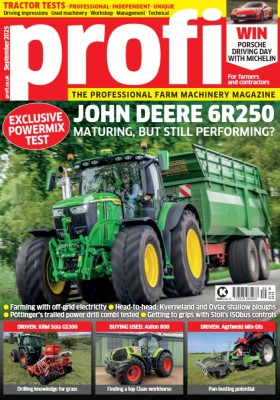The agricultural machinery industry was able to maintain its turnover level in 2014, almost reaching the record heights of the previous year, but sales of agricultural machinery and tractors are now declining. That is the message from the German VDMA Agricultural Machinery Association, which anticipates worldwide production to be down by around 10% this year to around €90 billion. Managing director Dr. Bernd Scherer of the VDMA says this figure is still significantly higher than the average of the last ten years. “Since the last recession in 2009, the industry has experienced a huge boom,” he says, “but this is now well and truly over. We are expecting the markets to consolidate from now on, especially those established markets in Europe and America, although attractive opportunities for expansion continue to open up in several of the newly industrialised countries.” As is evident from the low backlog of orders, the business climate for leading agricultural machinery companies has cooled across the globe. One in two Western European and North American managers currently rates their business outlook as ‘unsatisfactory’ according to a survey coordinated by VDMA. The European Union and North America make up around 55% of the world market for agricultural machinery and set the tone for global trends. Primarily, a heavily saturated market is currently taking its toll – this is mostly due to the very high level of investment in farming over the last three years. In addition, incomes for farmers are lower on account of falling prices for agricultural products. As a result, in the first half of the year demand for new machinery fell in some cases by more than 20%. Sales markets in South America and Eastern Europe are also weak. However, the difficulties on these markets is also due to the overall economic situation which has led to a sharp fall in government investment support schemes. The harvesting machinery business in Russia is proving particularly challenging as it is well known that it is still struggling with inflexible import restrictions. However, there has been noticeable growth this year in the Japanese, Chinese and Turkish markets for agricultural machinery.
Farm machinery sales boom is over
The agricultural machinery industry was able to maintain its turnover level in 2014, almost reaching the record heights of the previous year, but sales of agricultural machinery and tractors are now declining. That is the message from the German VDMA Agricultural Machinery Association, which anticipates worldwide production to be down by around 10% this year […]






